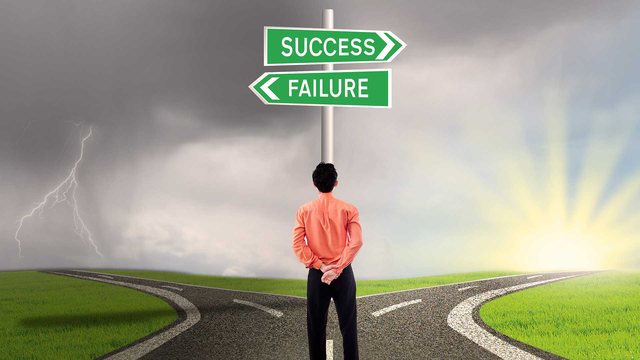
Fail successfully? It sounds like an oxymoron, but it's not. That failure does not preclude success, nor is success only for those who do not make mistakes. In the history of the most unprecedented failures, names like Steve Jobs and Walt Disney stand out, which makes us think that mistakes are inevitable and that we can learn a lot from them both from contexts and from ourselves.
In fact, there are "right mistakes" that can serve as springboards for learning. They are part of the taxonomy of errors proposed by Amy Edmonson in the book "The Right Error" (Egea) which identifies three basic types, each with its own characteristics.
Failure can be 'elementary', 'complex' or 'intelligent'.
To understand how to distinguish the different types of mistakes and their potential benefit or harm, you will need to read the book, but the importance of knowing how to recognize when a 'smart mistake' is an opportunity for growth should be emphasized .
It can happen that a setback leaves us with a pile of grains of sand or piles of rubble and the temptation is to blame ourselves or call ourselves stupid (everyone adds insult to injury). But after drying the tears of rage and with a less troubled heart, it's worth stopping to take a closer look. What really happened, and above all, how can we use what happened to learn? We can sift through the sand to find that there are specks of precious metals in the middle. Or decide to combine what is left with other materials. The pieces joined together with a complex technique that repairs with gold is an ancient technique that the Japanese call Kintsugi. In short, we might think that maybe breaking something isn't a disaster at all, and that if it did happen it could be a great opportunity to get out of our comfort zone.
Let's think about children, they are not afraid to make mistakes and really learn valuable lessons from them, so that is why it is important to regain this mindset open to mistakes even in adulthood.
However, the standard reaction to a mistake is to ignore it, pretend it didn't happen, and be ashamed of it. In this way we miss important opportunities to learn. Edmonson did it for us, he understood that mistakes are not all the same and that some failures are a holy helping hand.
In a study of pilot errors with the simulator, it was found that among tired pilots, those who worked alone made more mistakes than those who, although tired, had worked in a group. Therefore, those who work well together can cooperate to identify and correct colleagues' mistakes as long as there is a work environment in which the mistake is not stigmatized and punished, but used as a learning tool.
A healthy company failure culture encourages learning from mistakes, while a toxic one punishes and stigmatizes, ensuring that they do not occur and exert their formative effects.
Don't believe anyone who tells you they've never made mistakes, they just don't have a positive culture of failure and don't want to admit it. What I have come to realize is that 'smart' failures are a gift from Above.
















































